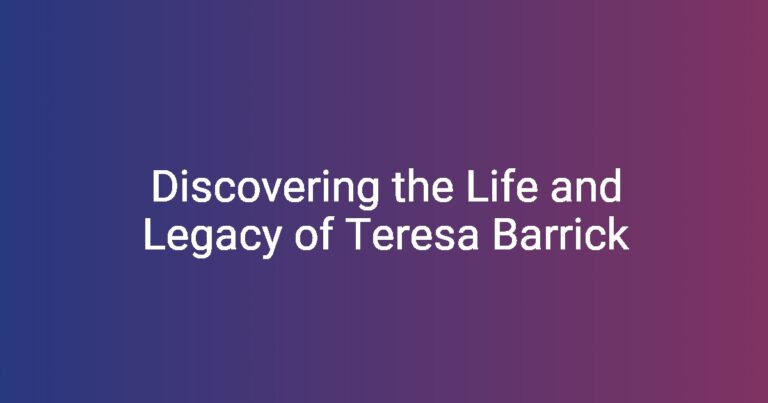In our personal and professional lives, we often encounter unsolicited advisors—individuals who offer advice without being asked. These advisors can arise in various contexts, from well-meaning friends and family to assertive colleagues and even strangers on social media. Understanding the dynamics of unsolicited advice is essential, especially because it can significantly influence decision-making and interpersonal relationships. Grasping who these unsolicited advisors are and why they give advice can help us navigate such situations more effectively.
Characteristics of Unsolicited Advisors
Types of Unsolicited Advisors
Friends and Family: Often, our loved ones feel compelled to share their thoughts in an effort to help us make better decisions. While this advice is usually well-intentioned, it might not always consider the full context of our situations.
Colleagues and Co-workers: In the workplace, coworkers may frequently share unsolicited guidance. Their intent can vary—from genuine desire to assist to an assertive need to interject their views into team dynamics.
Social Media Influencers: With the prevalence of social media, influencers and content creators often provide unsolicited advice to their followers, positioning themselves as knowledgeable figures. This can lead to significant impacts on their audience’s choices and behaviors.
Anonymous Internet Users: Forums and online platforms may be breeding grounds for unsolicited advice, as anonymous users feel free to express their opinions. This type of advice can be particularly challenging to filter for relevance and credibility.
Traits of Unsolicited Advisors
Overconfidence in Their Knowledge: Unsolicited advisors often overestimate their knowledge and experience. This confidence can lead them to offer advice that they believe is sound, even when it may not be suitable.
Lack of Awareness of the Recipient’s Situation: An essential characteristic of unsolicited advisors is their unfamiliarity with the recipient’s unique circumstances. Without understanding the nuances of someone’s situation, their advice can miss the mark entirely.
Tendency to Give Advice Without Context or Understanding: Many unsolicited advisors provide guidance without gathering sufficient background information. This lack of context can render their suggestions unhelpful or even harmful.
Motivations Behind Unsolicited Advice
The Desire to Help
Altruism and Genuine Concern: Many unsolicited advisors act out of a desire to help. They may see an opportunity to assist someone they care about and feel compelled to share what they believe could be useful advice.
Misinterpretation of How Advice is Received: Sometimes, the intent of unsolicited advisors can be misplaced. They may not recognize that the recipient may not want or need advice, leading to potential frustration.
Ego and Self-Validation
Seeking to Feel Important or Relevant: Some individuals give unsolicited advice as a way to assert their value in a group. They may feel more significant when offering guidance, especially to peers or subordinates.
Boosting Self-Esteem by Demonstrating Expertise: By sharing their knowledge, unsolicited advisors often seek validation for their opinions. This behavior can create a cycle where they feel compelled to give advice to fortify their self-image.
Social Dynamics
Group Think and Peer Pressure to Conform: In social environments, people may provide unsolicited advice to fit in or align their views with a dominant group. This behavior can further perpetuate waves of unsolicited opinions.
Cultural Influences Leading to Advice-Giving as a Norm: In certain cultures, giving unsolicited advice can be seen as a social norm. Understanding these cultural aspects allows individuals to navigate their interactions with unsolicited advisors more wisely.

Impacts of Unsolicited Advice
On the Receiver
Emotional Responses: Frustration, Confusion, or Anger: Those receiving unsolicited advice may feel a range of emotions. This spectrum—from irritation to gratitude—depends on the advice’s relevance and delivery, influencing their overall well-being.
Impact on Decision-Making: Validation or Self-Doubt: Unsolicited advice can sway decisions, either reinforcing confidence or creating self-doubt. It’s crucial for individuals to recognize the impact this advice has on their thought processes.
On Relationships
Strain on Personal Relationships: Frequent unsolicited advice can strain relationships, especially if it’s perceived as patronizing or excessive. Understanding the boundaries of supportive advice can help maintain harmony.
Risk of Eroding Trust and Communication: When unsolicited advice leads to misunderstandings, it can erode trust. Open channels of communication are vital for ensuring that advice is given and received in the right spirit.
On Work Environments
Team Dynamics and Collaboration Challenges: In professional settings, unsolicited advice can disrupt team dynamics. If individuals frequently interject their opinions, collaboration may suffer, leading to frustration.
Potential for Misalignment in Project Goals Due to Differing Opinions: When unsolicited advice diverges from shared project goals, it can create misalignment and impact productivity. Open dialogue can help maintain focus on objectives.
Navigating Unsolicited Advice
Evaluating the Intent and Value
Assessing if the Advice Could be Helpful or Relevant: Before acting on unsolicited advice, individuals should reflect on its potential relevance. Filtering this input can help avoid unnecessary complications.
Filtering Based on the Source’s Credibility: Understanding who provides unsolicited advice is crucial. Trusting sources with demonstrated knowledge can help enhance decision-making and minimize unnecessary influence.
Responding Constructively
Techniques for Graciously Acknowledging Unsolicited Advice: A simple acknowledgment can often diffuse tense situations. Expressing gratitude for the input can mitigate friction without commitment to follow the advice.
Setting Boundaries with Advisors: It’s essential to establish clear boundaries when dealing with unsolicited advisors. Explaining that you appreciate their concern, but prefer to seek your own solutions can preserve relationships.
Cultivating a Personal Support Network
Building Relationships with Trusted Advisors: Developing a network of trusted individuals can provide guidance when needed while filtering out unwanted advice. Seek mentors who align with your goals and values.
Seeking Feedback from Qualified Mentors: Engaging with mentors can provide focused advice tailored to your situation. Unlike unsolicited advisors, mentors typically offer their guidance after understanding specific needs.

When to Seek Professional Advice Instead
Understanding Professional Boundaries
Differentiating Between Unsolicited Advice and Expert Input: Not all advice is created equal. Recognizing when to consider professional opinions versus unsolicited advice is crucial for effective decision-making.
Identifying Qualified Professionals
How to Recognize Experienced and Reliable Advisors: Look for professionals with credentials and verifiable experience in their fields. This discernment can direct you to more pertinent and impactful guidance.
Instances Where Professional Guidance is Essential: For critical decisions affecting health, finance, or well-being, seeking professional advice can be vital. Trusting experts rather than relying on unsolicited opinions in these areas ensures better outcomes.
Conclusion
Recognizing the significance of unsolicited advice and understanding how to manage it benefits personal growth and relationship management. Cultivating discernment in accepting advice allows individuals to foster healthier communication and decision-making processes.
Additional Resources
– Recommended reading: Psychology Today on navigating advice and mentorship.
– Professional coaching services: Explore options at ICF Credentialing.
– Community platforms like Reddit or Quora for discussing experiences and seeking advice.
| Category | Characteristics | Impacts on Receiver |
|---|---|---|
| Friends and Family | Well-meaning but can lack context | May lead to frustration or validation of feelings |
| Colleagues and Co-workers | Influenced by workplace dynamics | Can disrupt collaboration and cause strain |
| Social Media Influencers | Broad reach but may lack personalization | Impacts followers’ behavior based on popularity |
| Anonymous Internet Users | Varied motivations and credibility | May create confusion and misinformation |
Frequently Asked Questions (FAQ)
1. What are unsolicited advisors?
Unsolicited advisors are individuals who offer advice without being asked, often with varying degrees of relevance and intent.
2. Why do people give unsolicited advice?
Motivations can range from genuine help to seeking validation or adhering to social norms.
3. How can I respond to unsolicited advice?
Acknowledge it graciously if necessary, and consider setting boundaries to prevent future occurrences.
4. Should I always take unsolicited advice seriously?
Not necessarily; evaluate the context and credibility of the advisor before considering their input.
5. How can I build a support network for advice?
Engage with trusted friends, mentors, and professionals who understand your needs for tailored guidance.
6. When should I seek professional advice instead of relying on unsolicited advice?
For critical matters affecting health, finances, or major life decisions, professional input is crucial.
7. Can unsolicited advice affect my relationships?
Yes, it can create strain if perceived as intrusive or unhelpful, highlighting the need for open communication.
8. How do I know if an advisor is credible?
Check their qualifications, experience, and reviews from others who have benefitted from their guidance.
9. Is unsolicited advice always bad?
Not always, as some unsolicited advice might lead to positive insights, though it needs to be assessed on a case-by-case basis.
10. How can I learn to filter unsolicited advice?
Develop a system for evaluating advice based on the advisor’s credibility, your needs, and the situational context.








